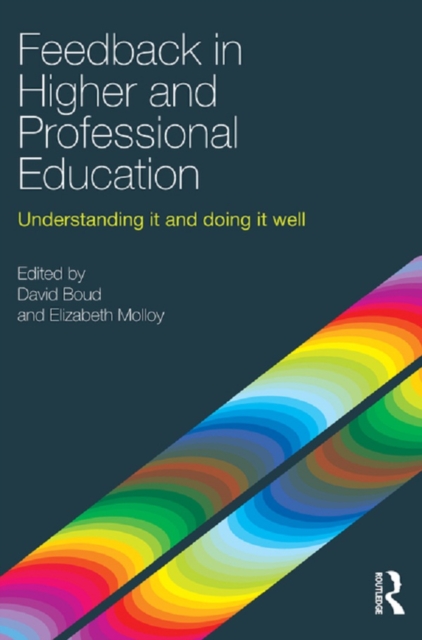
Feedback in Higher and Professional Education : Understanding it and doing it well EPUB
Edited by David (Deakin University, Australia) Boud, Elizabeth Molloy
EPUB
Description
Learners complain that they do not get enough feedback, and educators resent that although they put considerable time into generating feedback, students take little notice of it.
Both parties agree that it is very important. Feedback in Higher and Professional Education explores what needs to be done to make feedback more effective.
It examines the problem of feedback and suggests that there is a lack of clarity and shared meaning about what it is and what constitutes doing it well.
It argues that new ways of thinking about feedback are needed.
There has been considerable development in research on feedback in recent years, but surprisingly little awareness of what needs to be done to improve it and good ideas are not translated into action.
The book provides a multi-disciplinary and international account of the role of feedback in higher and professional education.
It challenges three conventional assumptions about feedback in learning: That feedback constitutes one-way flow of information from a knowledgeable person to a less knowledgeable person. That the job of feedback is complete with the imparting of performance-related information. That a generic model of best-practice feedback can be applied to all learners and all learning situations It seeking a new approach to feedback, it proposes that it is necessary to recognise that learners need to be much more actively involved in seeking, generating and using feedback.
Rather than it being something they are subjected to, it must be an activity that they drive.
Information
-
Download - Immediately Available
- Format:EPUB
- Pages:240 pages, 10 Tables, black and white; 15 Illustrations, black and white
- Publisher:Taylor & Francis Ltd
- Publication Date:12/12/2012
- Category:
- ISBN:9781135107468
Information
-
Download - Immediately Available
- Format:EPUB
- Pages:240 pages, 10 Tables, black and white; 15 Illustrations, black and white
- Publisher:Taylor & Francis Ltd
- Publication Date:12/12/2012
- Category:
- ISBN:9781135107468






